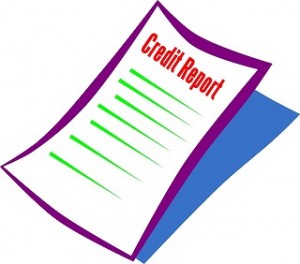 Here is a one-question True or False exam that every future Highlands first-time home buyer should take:
Here is a one-question True or False exam that every future Highlands first-time home buyer should take:
True or False:
One sure way to build a strong credit report is to pay your bills on time.
(Answer: False)
Particularly for a first-time Highlands home buyer, being able to present a strong credit report can make the difference between being able to afford a quality home that satisfies all your ‘must haves’—or one you just sort of settle for.
It’s about how much you can comfortably afford. The interest rate you will be offered is directly related to your bill-paying history, and a percentage point (or more) can make a big difference in your monthly budget. Because lending institutions charge more or less based upon the degree of risk they believe a loan carries, the stronger your credit report, the “more house” your monthly payment will cover.
Of course, since a string of unbroken records of punctual payments is what lenders look for, you might think that the answer to my one-question True or False exam would be an unqualified ‘True’—but not so fast. There’s a small catch is in the unbroken records that they look for. The word records.
Just paying your bills on time doesn’t build a strong credit report unless there are records of it—and for Highlands first-timers who have been paying rent for years, all those prompt payments could well be missing in action. The surprising reason lies in the nature of our whole credit reporting system.
It’s voluntary.
As the L.A. Times spotlighted last summer, landlords, phone and cable companies, “and many other creditors don’t report your payments” to the big three credit bureaus (Equifax, Experian and TransUnion). They aren’t required to do so. If you’re planning on becoming one of our Highlands first-time home buyers, that might be a big deal—especially since rent payments usually make up the lion’s share of what you buy on credit. But you can do something about it!
Recognizing the difficulty some first timers were having in qualifying for home loans precisely because of such missing data, about five years ago, the credit bureaus teamed up with services like RentTrack that enable tenants to pay their rents online—and get credit for them. TransUnion and Experian also introduced services like “ResidentCredit” and “RentBureau” that encourage property managers to report rent payments for their tenants. That makes sense for landlords, too, because when rent payments are recorded, it enables them to better gauge the creditworthiness of their next batch of applicants.
Making sure your payments are being recorded will put today’s renters ahead of the game when they eventually decide they’re ready for the next step: home ownership. It simplifies the answer to that One-Question True or False credit report question greatly…to a simple “True”!


 They really ought to teach this stuff in school: real-life, day-to-day economics. Highlands youngsters out on their own for the first time are usually left to trial and error when it comes to mastering things like how to lay out a personal budget or use credit advantageously. Or even how to go about selecting a bank, or opening a checking account…
They really ought to teach this stuff in school: real-life, day-to-day economics. Highlands youngsters out on their own for the first time are usually left to trial and error when it comes to mastering things like how to lay out a personal budget or use credit advantageously. Or even how to go about selecting a bank, or opening a checking account… There is a seven-year window for some past Sapphire homeowners—and it’s one that’s opening, not closing. The ‘window’ in question is the one that could activate Sapphire “Boomerang Buyers”—which would come as good news for the local home sales.
There is a seven-year window for some past Sapphire homeowners—and it’s one that’s opening, not closing. The ‘window’ in question is the one that could activate Sapphire “Boomerang Buyers”—which would come as good news for the local home sales. When anyone is in the early stages of finding a Highlands house to buy, unless they are planning to pay for it with cash, a large part of what eventually happens will be determined by the home loan they secure. Both the size of the home loan and its interest rate are negotiable, but in almost all cases, the applicant’s part of the “negotiation” consists of comparing offers from various Highlands home loan providers.
When anyone is in the early stages of finding a Highlands house to buy, unless they are planning to pay for it with cash, a large part of what eventually happens will be determined by the home loan they secure. Both the size of the home loan and its interest rate are negotiable, but in almost all cases, the applicant’s part of the “negotiation” consists of comparing offers from various Highlands home loan providers.
